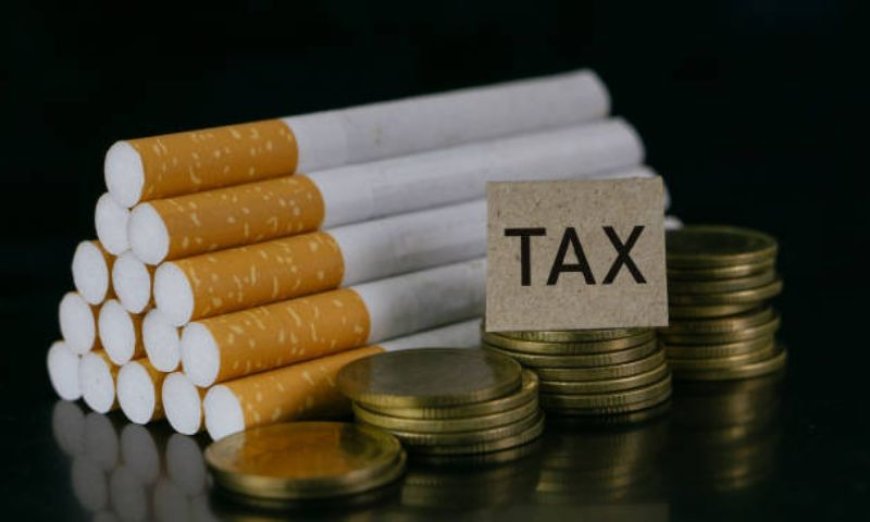FIA Probes Tobacco Firm Over Tax, Money Laundering
The Federal Investigation Agency (FIA) has launched a comprehensive probe—Enquiry No. 46/2025—into Universal Tobacco Company (UTC), a major cigarette manufacturer based in Mardan, over suspected large‑scale federal excise tax evasion, money laundering, and misuse of the FBR’s Track‑and‑Trace stamp system.

The Federal Investigation Agency (FIA) has launched a comprehensive probe—Enquiry No. 46/2025—into Universal Tobacco Company (UTC), a major cigarette manufacturer based in Mardan, over suspected large‑scale federal excise tax evasion, money laundering, and misuse of the FBR’s Track‑and‑Trace stamp system. The Corporate Crime Circle in Islamabad suspects UTC of underreporting production, falsifying sales and distribution data, and colluding with tax officials to conceal revenue streams. Preliminary findings suggest that over 40% of Pakistan’s cigarette market may currently evade formal tax channels. Investigators are collecting production certificates, excise returns, distributor register data, and financial flows to uncover the full scale of fraud.
-
Targeted Firm: Universal Tobacco Company (UTC), Mardan-based cigarette manufacturer
-
Case Reference: FIA Enquiry No. 46/2025, Corporate Crime Circle, Islamabad
-
Conduct Under Investigation: Tax evasion via underreporting production, falsified sales, misuse of the FBR track‑stamp system
-
Scale Concern: Experts estimate over 40% of cigarette sales may operate outside regulatory oversight
-
Evidence Collection: Production certificates, excise and income tax filings, distributor logs, and financial records
-
Scope of Allegations: Federal Excise Duty (FED) fraud, collusion with tax officials, and forced under-invoicing of volumes
-
Legal Framework: Investigation operating under the authority of the Federal Investigation
Major Revenue at Risk
Tobacco products generate significant tax revenue—yet widespread non-compliance threatens federal excise collections and shows systemic enforcement gaps.
Undermining Tax Systems
Allegations include misuse of FBR’s Track-and-Trace system, designed to validate production and sales, suggesting weak regulatory compliance and internal collusion.
Economic & Health Impact
The scale of tax evasion hurts public finance and violates global public health initiatives like the WHO’s tobacco tax guidelines, which Pakistan has not adequately enforced.
Investigators are seeking production capacity records, distributor sales ledgers, excise clearance registers, and tax filings. They will review discrepancies between stamped production volumes and declared income.
The probe includes tracing financial flows—examining suspicious transfers, whistleblower documents, and audit trails tied to tax compliance.
Officials at UTC and collaborating customs/tax personnel are likely to be summoned. An FIR is expected to be registered for legal enforcement, with charges under relevant sections of the PPC, Customs, and Excise Acts.
Reddit commentators question FIA’s capacity—especially amid underfunding, bureaucratic inefficiencies, and weak oversight structures.
Past FIA probes into corruption (e.g. fake accounts, smuggling operations) show varying enforcement strength depending on political backing and case visibility.
As the DG of Intelligence & Investigation – Inland Revenue noted in 2023, distinguishing tax evasion from money laundering is critical to legal clarity—investigators must avoid conflating the two.
-
Experts believe tobacco industry revenue declarations are significantly lower than actual market volumes, putting pressure on FBR and FIA to enforce excise protocols more strictly.
-
Past analysis shows Pakistan ranks low globally (0.88/5) on tobacco tax frameworks—highlighting structural weakness in excise policy design.
-
FIA’s corporate crime wing has expanded scope since COVID-era tax scams—this probe could catalyze wider clean-ups in other industries reliant on indirect purchases.
The FIA’s investigation into Universal Tobacco Company marks a notable escalation in enforcement against tax evasion in the tobacco sector—long seen as resistant to regulation. By targeting alleged misuse of excise stamps and hidden revenues, the probe aims to uncover fraudulent collusion and restore accountability in a high-value industry.

 Ateeq Ur Rehman
Ateeq Ur Rehman